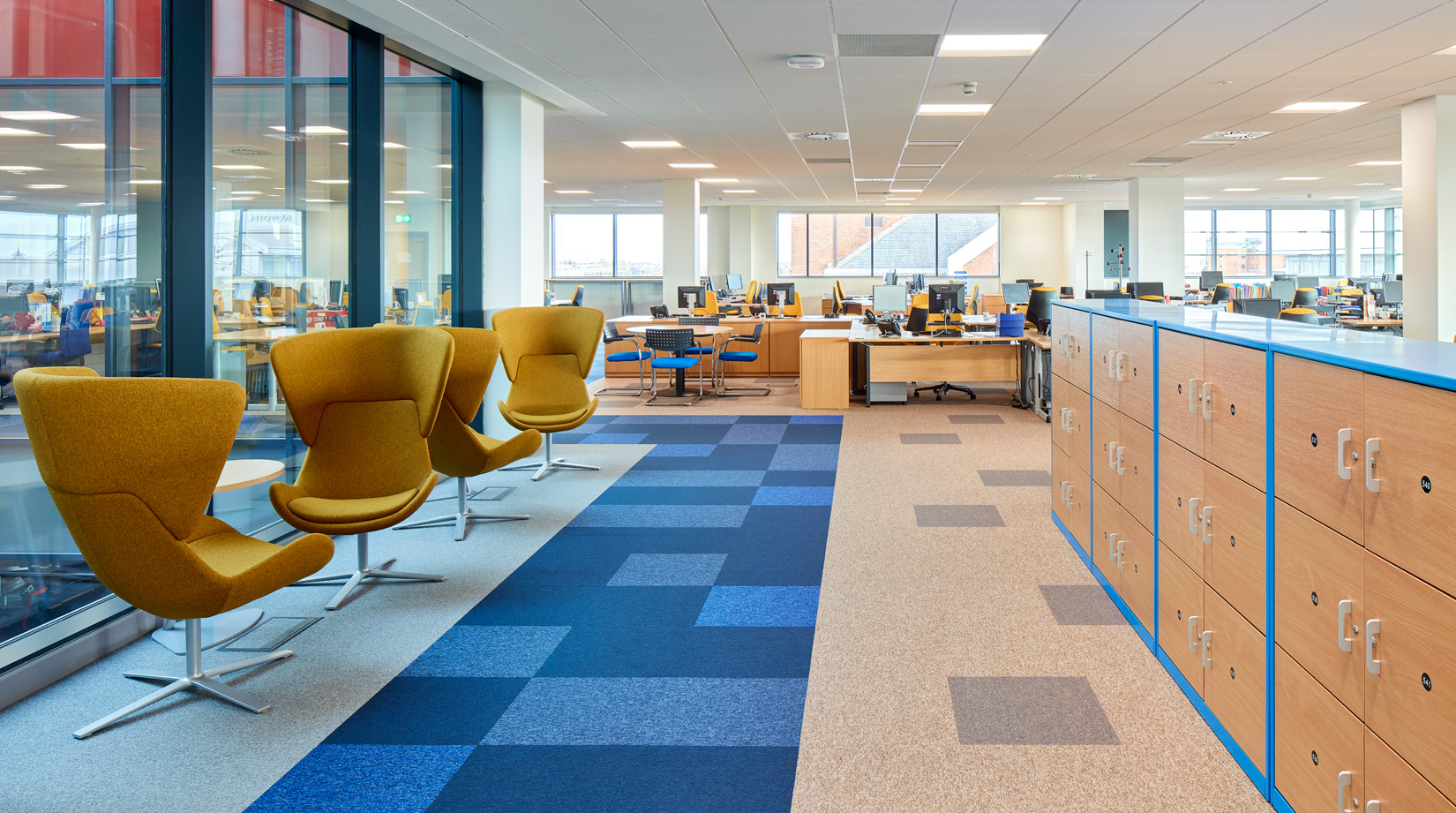Greenhouse Pioneer: Greg Lavery, Rype Office

Globally, we are changing the way we look at waste. For years, waste has been seen as a dirty problem with landfills seemingly the only solution. But this isn’t good enough. The negative impact of landfills is far-reaching, including water and air pollution; the destruction of habitats; and wider environmental issues through the release of harmful emissions, which contribute to the climate crisis.
The emergence of circular economy thinking is starting to present alternative ways of thinking. People are starting to see waste for what it truly is: a valuable resource. With the right mindset and the right vision, waste offers an opportunity to create new products and add value to materials. Waste can be diverted from landfill, reducing harmful emissions and protecting wildlife in the process.
This circular mindset is now starting to transform workplaces, traditionally major culprits and generators of waste. Everyday in the UK, 300 tonnes of office furniture goes to landfill. We spoke to Greg Lavery, founder of Rype Office, who is working to address this problem by refurbishing office furniture and contributing to a circular economy.
1. Tell us, in 20 words or fewer, about Rype Office – what’s your mission?
Our mission at Rype Office is to help clients create sustainable, beautiful and affordable offices.
2. What drives you?
Every day we hear terrible stories about climate disaster, waste, pollution, species loss and social exclusion.
I get a buzz every day being able to help to turn this around without compromises, reduce carbon in the atmosphere, reduce waste and create wonderful spaces that save money for clients – while creating jobs for those with disabilities who have been long term unemployed.
3. What is your greatest achievement to date?
I am really proud that Rype Office has, to date, saved 1 million kilograms of CO2e greenhouse gas emissions, while also reducing waste and saving money for clients.
4. What are the challenges you face?
Very few people understand that remanufacturing brings products back to as-new condition. So we are sometimes thought of as a second hand furniture company – which is a bit insulting to our engineers and remanufacturers who work hard every day to produce flawless furniture.
5. What are you working on that’s getting you fired up and excited?
I am excited about the ranges of furniture that we are creating that are both beautiful and sustainable. For example our remanufacturable collaboration booths made by the Merthyr Tydfil Institute for the Blind and our recycled post-consumer waste plastic tables – these are wonderful conversation pieces that clients are choosing for their breakout areas and meeting rooms because they care about the community and the environment.

6. Where do you want to take Rype Office next?
We hope to grow Rype Office internationally and change the wasteful practices of the office furniture industry around the world.
A part of this change will be clients rethinking why they buy office furniture. Organisations already lease photocopiers, cars and the space they occupy – so why not also lease their furniture? Our leasing clients save money and we get the furniture back for further remanufacturing.
7. What can we, as individuals, do to make a difference?
Everyone can make a difference in their day-to-day decisions. This sounds simple, but requires some research to focus on decisions with the greatest impact.
For example, we recently learned that furniture is the biggest carbon impact in a commercial building. So if you are an architect, designer or facilities manager, choosing Circular Economy office furniture is a simple high-impact decision that makes a big difference.
8. How is what you are doing inspiring change in others?
We work with wonderful individuals within big and small organisations who really want to make a difference and they light up when we explain what we do because they have been looking for a better solution than furniture from virgin resources.
Their energy and enthusiasm are infectious and once they have delivered one project they become keen advocates for the Circular Economy.
9. Can you recommend a life- or game-changing book for our readers?
Ricardo Semler’s classic book ‘Maverick’ opened my eyes to the importance of challenging norms. He grew his company exponentially by questioning how a company and the people within it should operate. So if someone says ‘you shouldn’t do that’ I am always curious why not.
10. What do you listen to when you’re cooking dinner?
I am a big fan of dance music. So remixed disco tunes help when chopping carrots.
11. What’s the best advice you’ve ever been given?
My Mum used to play golf and her favourite saying was: “Play the shot that makes the next one easy.” I apply this every day because it reduces stress in a busy, fast-growing business. Thanks Mum!
12. Can you leave us with who’d be your Eco Hero?
There is an Unknown Eco Hero out there: The dedicated civil servant who designed the UK’s Landfill Tax. That is a subtle driver of change that has had profound impacts. For example, it means that disposing of unwanted products to landfill is now more expensive than repairing them or giving them away. You know who you are and you have my respect.
My next hero will be the person who drives through a bottle deposit scheme in the UK. When I lived in South Australia they had one of the few schemes in the world and its knock-on effects were wonderful. For example, it meant that homeless people could collect bottles and afford a meal and shelter, which also had the environmental benefit of cleaning up litter.
If your organisation is working to create a circular economy and looking to increase its impact, get in touch and let’s team up in the fight against climate change.


